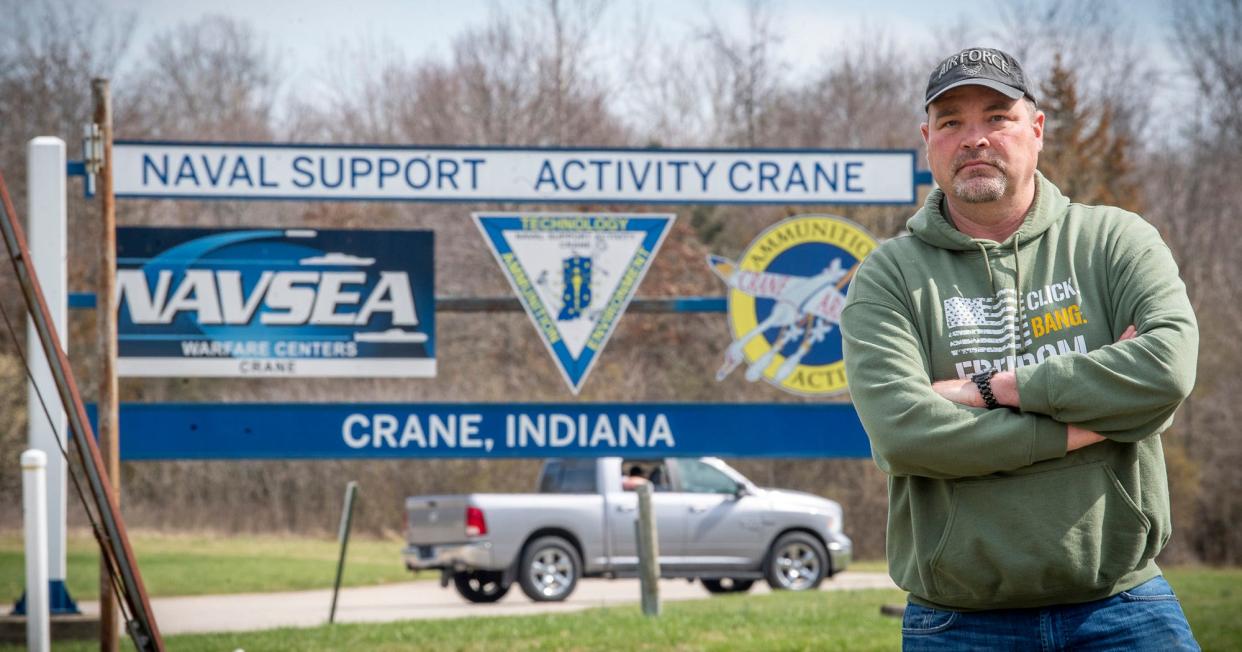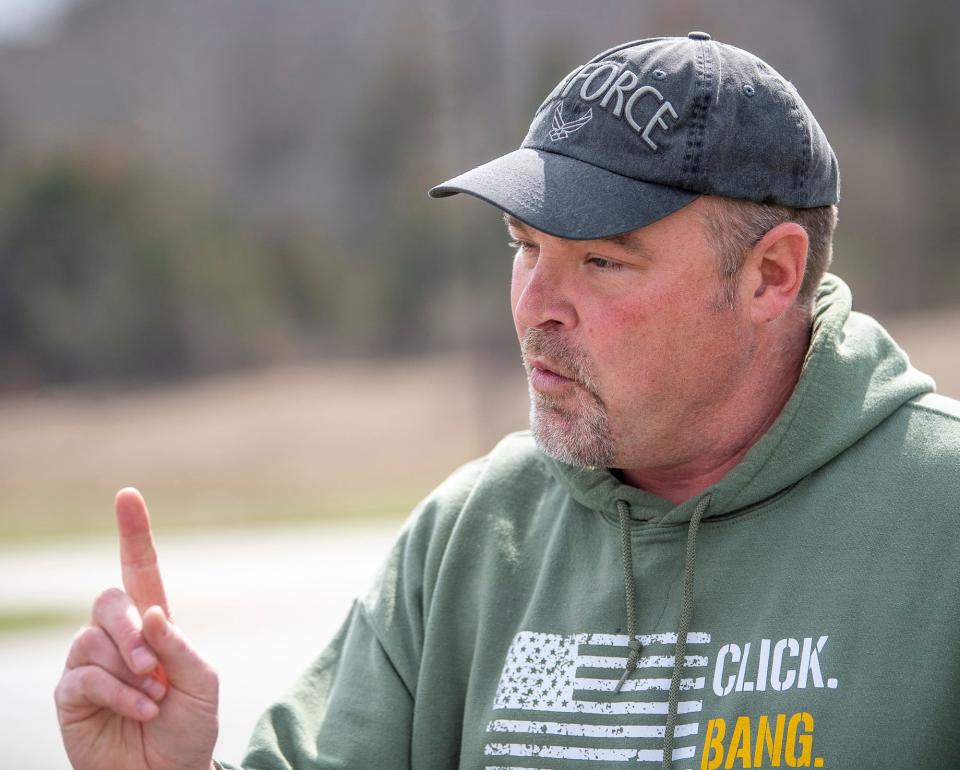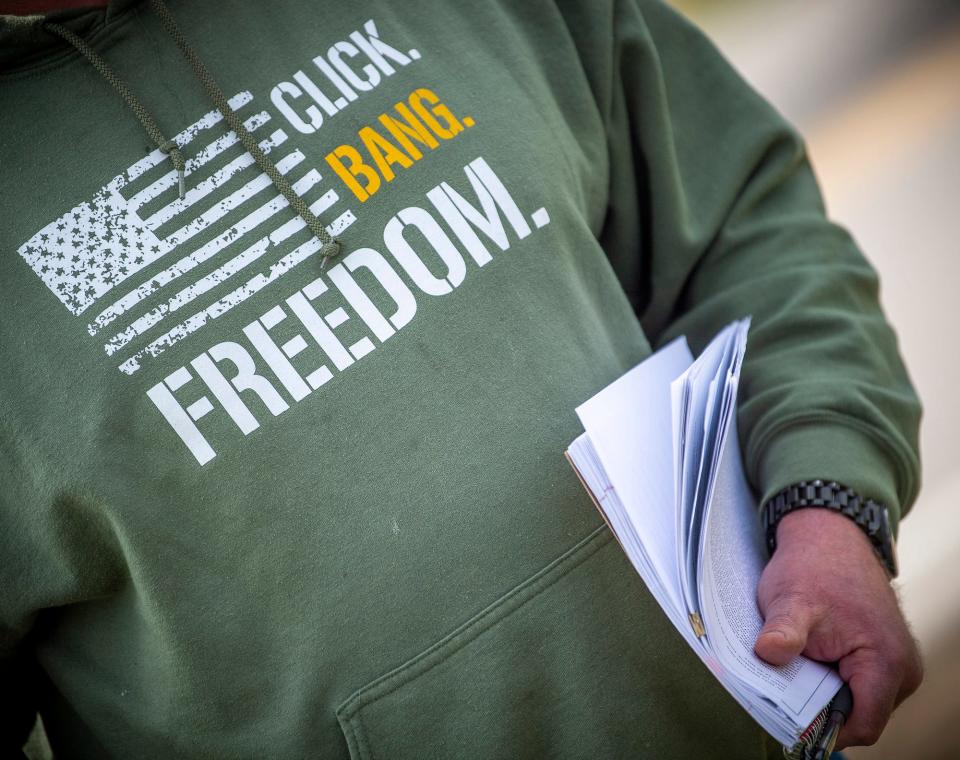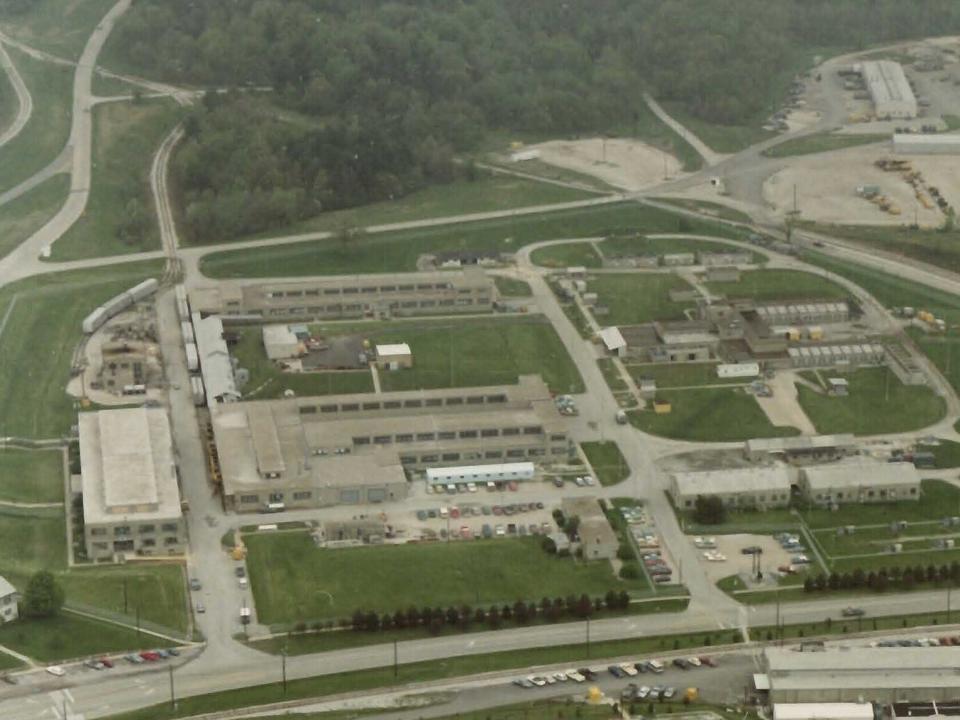Crane whistleblower claims Army, Navy retaliated against him; may testify before Congress

A whistleblower and former safety chief at a southern Indiana military installation said since he filed a report warning of potentially dangerous safety lapses, the U.S. Army and Navy have retaliated against him and are torpedoing his career.
Rick Ward said he repeatedly warned the military branches that sloppy handling of explosives at Crane Army Ammunition Activity could produce catastrophic consequences.
Ward has filed cases against both the Army and the Navy with the U.S. Merit Systems Protection Board, a quasi judicial agency that protects federal employees from, among other things, unfair labor practices.

He said the safety problems have existed for more than a decade, and the military agencies had failed to fix them since a 2013 explosion that hospitalized five people. The U.S. Office of Special Counsel, an independent federal investigative and prosecutorial agency, largely confirmed the findings in Ward’s reports. It has shared its findings with the White House.
Ward said instead of fixing the problems, the military branches fired him and now are preventing him from keeping his security clearance, which is vital to his career.
“My wife has been without a husband and my kids have been without a father because I have had to do jobs out of state because of the retaliation I experienced,” he said.
Ward has four years of active military duty, 22 years in the reserves, has obtained the rank of major and is an 80% disabled veteran.
Naval Support Activity Crane is about 35 miles southwest of Bloomington. The installation is charged with supporting tenant commands, including CAAA, with their logistics, engineering, and ammunition missions.
Attorneys who are helping Ward said the facts in his case are clear and obvious.

F. Douglas Hartnett, partner with Washington, D.C-based law firm Elitok & Hartnett, which is handling Ward’s Merit Systems Protection Board cases, said the timing of Ward’s firing — within one hour of handing in the critical safety report — is “powerful evidence that the two are connected, and that the action was in retaliation.”
Tom Devine, legal director of the Government Accountability Project, which helps whistleblowers, said Ward's situation is "something right out of Kafka."
Ward has made a significant difference by first reporting critical safety violations and then blowing the whistle when his warnings were ignored, Devine said.
“You’d think that he would have gotten some sort of medal,” he said.
Instead, the government is retaliating against Ward even after he has been vindicated by internal investigations, Devine said.
“We view (Ward) as a poster child not only for dangerous armed services breakdowns but also for security clearance retaliation against whistleblowers," he said.
According to the Government Accountability Project's website, Devine has helped more than 7,000 whistleblowers, including on cases related to government meat inspection, missile defense and to shutter accident-prone nuclear power plants. "He has not lost a case since 2006, and has prevailed in advocacy at numerous U.S. courts of appeals as well as the Supreme Court," the website reads.
Spokesmen for the military installation said they could not comment on specifics until the cases are resolved, but they denied Ward's retaliation and blackballing allegations.
Randy Tisor, who handles public affairs for Crane Army Ammunition Activity, said the Army “takes workplace safety very seriously and welcomes safety concern feedback from all our employees. Reprisals are never part of our safety equation.”
“The Army did not retaliate against Mr. Rick Ward in any form or manner,” Tisor said via email.
Bruce M. Drake, public affairs officer for NSA Crane, said job applications for NSA Crane are handled through a regional office in Virginia, which means personnel in Indiana wouldn’t even see Ward’s name on applications until the Virginia office forwards them.
“We are not engaged in any blackballing operations,” Drake said.
Former chief : Crane supervisors ‘not interested in keeping people safe’
According to documents Ward filed with the U.S. Merit Systems Protection Board, he served at Naval Surface Warfare Center, Crane Division, before he joined Crane Army Ammunition Activity in October 2019.
“From Day 1 … I could tell I made a mistake,” he wrote. “My leadership was toxic, and they were not interested in keeping people safe. They were only interested in profits.”
Ward describes how he brought up safety concerns almost daily, only to have his supervisor tell him there were bigger problems to worry about. His supervisor also reminded Ward he could be fired easily during his probationary period.
Ward previously has said personnel at the facility in some cases were moving explosives with chains and slings that had not been inspected or certified for years. If those chains or slings fail, the bombs can drop, which Ward said has happened. The bombs could explode, blow up buildings and kill workers.
Ward said his supervisors continued to ignore his reports, prevented him from doing his job and refused to grant him leave in an attempt to get him to quit.
Instead, Ward filed a complaint with the Occupational Safety and Health Administration, but the agency declined to investigate because of the COVID pandemic. OSHA instead instructed the Army to investigate and send the report to OSHA.
“So, I was assigned to investigate my own OSHA complaint,” Ward wrote.
“Within one hour of turning in my inspection to management, I was sent home on paid admin leave,” he wrote. “... My computer and phone were confiscated and wiped.”
Ward said he was fired in January 2021 on “made-up misconduct charges.”

In interviews, Ward said he essentially did his job too well, and the military agencies didn’t like to be reminded repeatedly of potentially serious safety lapses. Instead of fixing the problems he identified, Ward said the agencies fired him and are now going after his security clearance, which could significantly reduce his employment options and pay.
The U.S. Army investigated Ward’s complaint after the former safety chief took his case to the U.S. Office of Special Counsel, an independent federal investigative and prosecutorial agency that derives its authority in part from the Whistleblower Protection Act.
A letter that U.S. Special Counsel Henry J. Kerner sent to President Joe Biden and Congressional leaders in October 2022 indicates the Army’s investigation substantiated, either fully or partially, five of eight allegations Ward made.
Devine, who has worked for the Government Accountability Project since the 1970s, said the vast majority of the nonprofit’s clients have faced retaliation “for doing their jobs too well."
People who work in quality control, compliance, safety and other jobs are the “human safeguards (and) internal watchdogs" that allow organizations to function.
“If they’re just window dressing,” Devine said, “it means power is being abused.”
Ward said despite his experience and status as a disabled veteran, he is now “not even being interviewed for jobs I am well qualified for.” In addition, he said, the military branches are now “tampering with my security clearance."
Devine said Ward cannot effectively pursue his calling without his security clearance, and under current law he has no independent due process rights to challenge the security clearance retaliation.
Devine said the nonprofit is working on getting Ward a meeting with members of the U.S. Congress, including the U.S. House and Senate Armed Services committees, to try to close that loophole in whistleblower protection law.
Meanwhile, Ward is barred from even entering the facility where he formerly worked as safety chief.
Ward shared a letter he received in November 2022 from Cmdr. James L. Smith, then-commanding officer at NSA Crane, informing Ward he was barred from entering the installation “due to recent disturbances you have caused on 25 October 2022, 26 October 2022, and 16 November 2022 that threatened the safety of (NSAC) employees.”
Ward said he was barred because he distributed on those days copies of The Herald-Times newspaper that included a story about his situation. The story was published Oct. 24, 2022.
Potentially catastrophic: Crane whistleblower alleges safety violations with explosives at Indiana base
A new $100 million ammunitions facility

NSA Crane announced last year that it would spend nearly $100 million to replace the more-than-seven-decades-old Crane Army Ammunition Activity’s pyrotechnics production processes facility.
The new facility is being planned for a mostly vacant and wooded area south of the current facility, with planned completion for fiscal year 2031.
Ward said building a new facility is one way of getting out from under the safety problems of the old one, and Devine, of the Government Accountability Project, said Congressional approval of $100 million for a new facility amounts to vindication for Ward.
However, Tisor, the Army spokesman, said the justification for the new pyrotechnics facility is “unrelated to Mr. Ward’s case in any discernible way.”
The facility “was conceptualized decades ago,” Tisor said, “... and gained momentum after Army Materiel Command’s Modernization initiative began in 2020.”
“Modernizing the outdated facility was a significant driver behind the decision to move this project forward,” he said.
Lauren Shipman, a CAAA civil engineer, said in a news release that the operations have expanded since the 1940s, and the new location will have modernized equipment, including cyber security measures, remote operations capabilities and climate-controlled storage, as well as “increased levels of safety buffers.”
“The new facility will be a process-flow setup for what we do today which will increase efficiency and throughput of our pyro items,” Shipman said.
Col. Franyate Taylor, CAAA commander, said, “The new pyrotechnics complex will modernize production capabilities and help ensure our support to our Army and the Joint Force for decades to follow.”
Drake, of NSA Crane, said the old facility will be used to expand the installation’s research capabilities.
While Ward said he is “extremely happy” the serious problems he identified are finally being addressed, he said the experience has sapped his confidence in the federal government.
“So I am glad I probably saved lives,” he wrote via email, “... however I want my life back where I can be with my family. I did nothing wrong. Sorry, I don’t want to see (people) die on the job.”
Boris Ladwig can be reached at bladwig@heraldt.com.
This article originally appeared on The Herald-Times: Crane whistleblower claims Army, Navy retaliated against him

